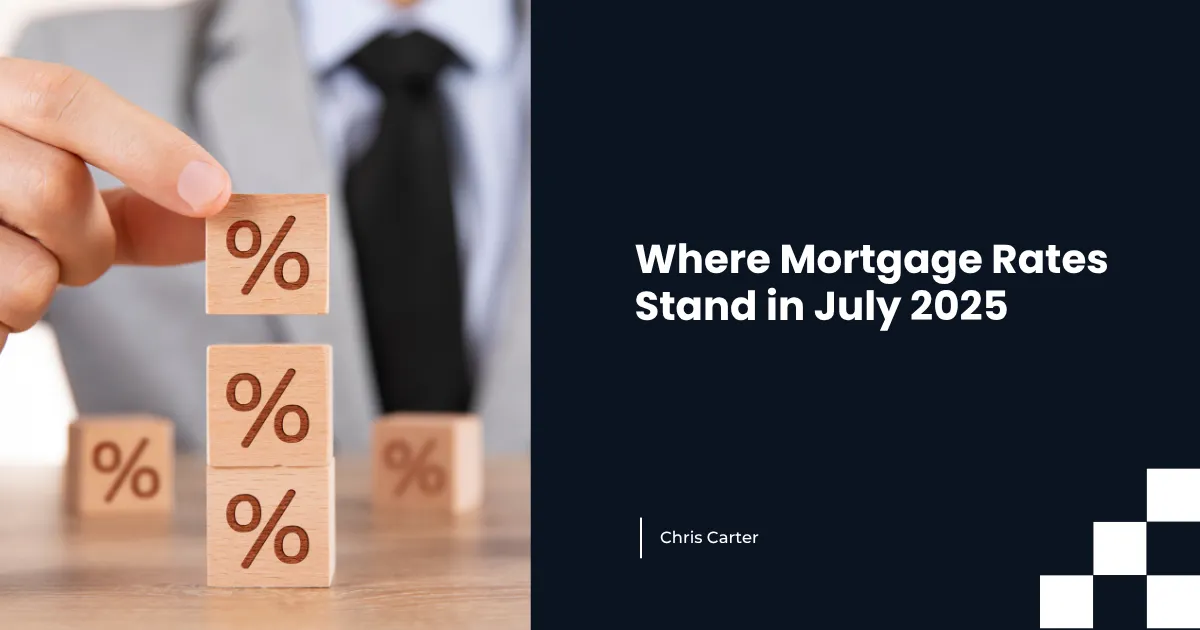
Where Mortgage Rates Stand in July 2025
In a housing market full of twists and turns, one question is front and center for buyers:
Should I lock in my mortgage rate now—or wait to see if rates drop later this year?
The truth is, for many borrowers, locking your rate now might be your best financial move—and we’ll break down why.
Where Rates Stand in July 2025
As of this month, the average 30-year fixed mortgage rate is sitting just under 7%, according to Mortgage News Daily. That’s lower than the highs we saw in late 2023, but still well above the sub-4% rates of the pandemic era.
Many economists expect rates to gradually trend downward if inflation cools and the Federal Reserve follows through with rate cuts. But in the meantime, mortgage rates are volatile, rising and falling with every new piece of economic data.
To monitor daily rate trends, this live chart is a useful resource.
Why Locking Now Could Protect You
A rate lock shields you from unexpected market swings while you shop for a home or go through the closing process. Let’s say you’re buying a $450,000 home with 10% down:
At a 6.75% rate, your monthly principal and interest payment is around $2,624.
If rates rise to 7.25%, that jumps to $2,760—a $1,600 per year increase.
In a tight affordability market, locking now could help you preserve buying power and stay within your budget. Most lenders also offer “float-down” options if rates drop after you lock, so you may still benefit if the market turns in your favor.
What If Rates Drop Later?
If rates do fall significantly, you may have the option to refinance later. That’s what many buyers did in 2020–2021 after purchasing when rates were higher in 2018–2019.
And while no one knows exactly what the market will do, the Federal Reserve’s June 2025 Summary of Economic Projections shows that most Fed officials expect modest rate cuts over the next 12–18 months.
But again—those are forecasts, not guarantees. And waiting for “someday” to arrive could cost you now.
Locking Gives You Control in an Unpredictable Market
Inflation. Job growth. Fed policy. Global events.
All of these can affect rates—and none of them are within your control.
What is in your control?
Locking your rate when you're ready
Securing a home before competition heats back up
Exploring refinancing later if rates fall
If your dream home is within reach and your payment fits your budget, locking your rate now gives you certainty in an uncertain market.
Final Thoughts
Waiting might feel like the safer bet—but in reality, not locking your rate could cost you more.
If you’re under contract or actively home shopping, ask your lender:
What’s the current lock period?
Do you offer float-down options?
Is there a cost to locking, and when should I do it?
Want more unbiased info on rate locks? Here’s a great non-competing guide from the Consumer Financial Protection Bureau.


